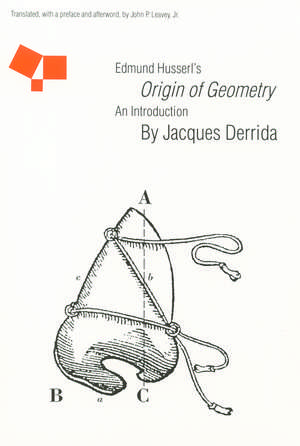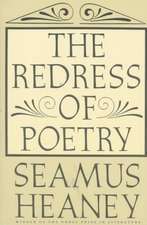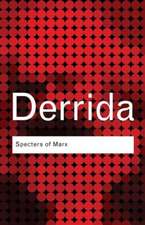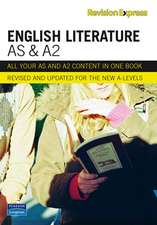Edmund Husserl's "Origin of Geometry": An Introduction
Autor Jacques Derrida Traducere de John P. Leavey, Jr.en Limba Engleză Paperback – mai 1989
Edmund Husserl's Origin of Geometry": An Introduction (1962) is Jacques Derrida's earliest published work. In this commentary-interpretation of the famous appendix to Husserl's The Crisis of European Sciences and Transcendental Phenomenology, Derrida relates writing to such key concepts as differing, consciousness, presence, and historicity. Starting from Husserl's method of historical investigation, Derrida gradually unravels a deconstructive critique of phenomenology itself, which forms the foundation for his later criticism of Western metaphysics as a metaphysics of presence. The complete text of Husserl's Origin of Geometry is included.
Preț: 211.53 lei
Nou
Puncte Express: 317
Preț estimativ în valută:
40.49€ • 43.99$ • 34.03£
40.49€ • 43.99$ • 34.03£
Carte tipărită la comandă
Livrare economică 21 aprilie-05 mai
Preluare comenzi: 021 569.72.76
Specificații
ISBN-13: 9780803265806
ISBN-10: 0803265808
Pagini: 214
Ilustrații: black & white illustrations
Dimensiuni: 152 x 229 x 16 mm
Greutate: 0.29 kg
Ediția:Revised
Editura: Nebraska Paperback
Colecția University of Nebraska Press
Locul publicării:United States
ISBN-10: 0803265808
Pagini: 214
Ilustrații: black & white illustrations
Dimensiuni: 152 x 229 x 16 mm
Greutate: 0.29 kg
Ediția:Revised
Editura: Nebraska Paperback
Colecția University of Nebraska Press
Locul publicării:United States
Notă biografică
This Bison Book edition carries an afterword by the translator, John P. Leavey Jr., who has also translated (with Richard Rand) Derrida's Glas and supplied a Glassary, books published by the University of Nebraska Press in 1986.
Recenzii
"One of Derrida’s best."—Radical Philosophy
"Derrida's 'deconstructive' critique of phenomenology relates writing to the key concept of 'consciousness of difference.' Following Husserl, he explores the philosophical and traditional roots of geometry and the sciences as a kind of history. . . . [This book] shows original thinking, and [is] accurate but demanding."—Library Journal















